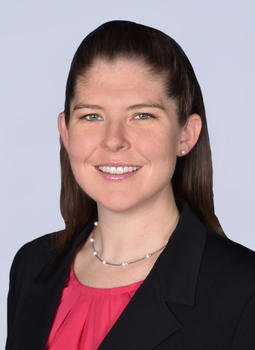Mason’s new Master of Nutrition dietetics concentration, commencing in fall 2022, will prepare Registered Dietitians to protect the public, remain competitive, and increase recognition of the field.
Registered Dietitians (RDs) play a leading role in population health through nutrition, and new requirements to become an RD will make the profession even more important. This fall, Mason’s first cohort of Master of Science in Dietetics students begins their education to become RDs with the Academy of Nutrition and Dietetics (ACEND) Future of Education Model curriculum. In the new full-time program, students will earn their master’s degree and complete their internship in two years. Mason is the only program with a main campus in the Washington, D.C., area whose curriculum follows this new best-practice model.
Starting in 2024, a master’s degree is required to take the RD licensing exam. These new professional requirements seek to elevate the field to better protect the public, remain competitive, and increase recognition of the field. Additionally, the changes will improve career satisfaction, professional involvement, and compensation among dietitians, according to the Commission on Dietetic Registration, the credentialing agency for the ACEND, who recommended the changes.
The Bureau of Labor Statistics reports that employment of dietitians is expected to increase 11% from 2020 to 2030, faster than the average for all occupations. RDs are the only licensed nutrition professionals in the United States and are held to the highest professional standard of any nutritional profession.
A didactic internship, another requirement to take the licensing exam, has always been a key component to being licensed; however, it is now included in the Dietetics curriculum. A great internship can help students explore different aspects of the dietitian nutritionist field and help them feel more prepared to begin their career. It can also provide a direction for where they want to focus their RD skills.

"One of the best parts of the internship is having opportunities to work in different areas and getting a feel for what branch of dietetics interests you,” says Oncology Dietitian Clinical Specialist at Inova Cancer Institute Lauren Fay, RD. “There are so many different specialties you can work in within this profession. Being able to get a taste, no pun intended, for what might be the best fit for you is an awesome opportunity and really helps when entering the profession.”
The internship requires 280 hours in a clinical setting with a current dietitian. Future preceptors, like Fay, are eager to begin working with Mason students.
“It’s our responsibility as practicing dietitians to ensure the future of our profession is well-trained and it would be crazy for me to miss out on that opportunity to pay it forward,” says Fay. “The difference between in-class learning and internships is that you get to see the application of your knowledge in a real-life setting. I don’t think that can ever be taught out of a book. Seeing a practitioner apply knowledge into a real-life situation gives you a much better understanding of how that information is actually helping individuals and how to apply it in the future.”
The program already has 15 preceptors in Virginia, Washington, D.C., and Maryland dedicated to guiding students through their internships. Internship opportunities range from hospitals and private practice to the Center on Aging and sports nutrition.
Fay is also a current Mason Master of Public Health (MPH) student with a concentration in Health Policy. She feels that earning this degree will make her a better dietitian and help her further professionalize the field of dietetics. For example, she would like to see RDs present at the table for policy discussions, she says, and she knows the MPH can help her do that.
From obesity to food insecurity and sustainability, Fay and other dietitians are key leaders in public health. Once Fay got involved with Mason, she was inspired to become a student herself, and is thrilled to continue sharing her knowledge with the next generation of dietitians, Mason RDs.
